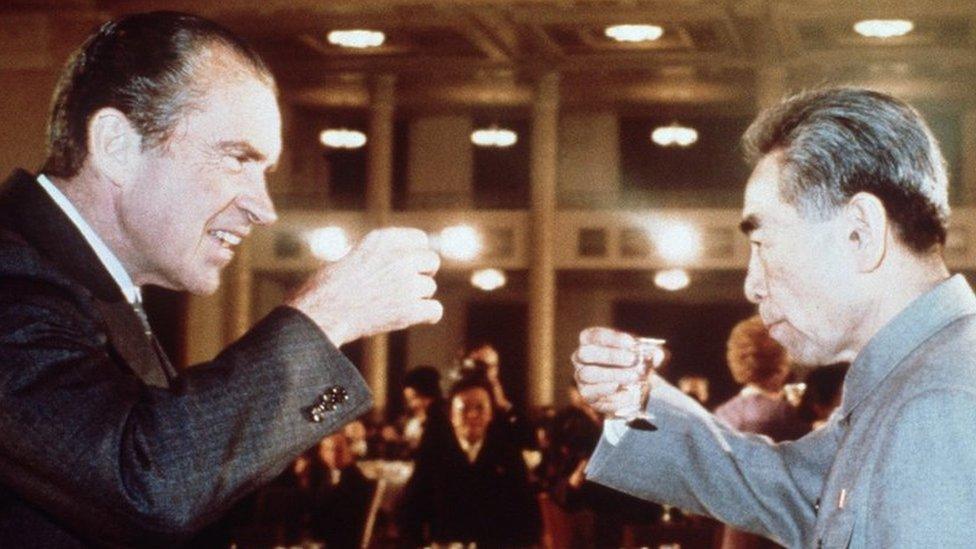Theresa May 'won't be afraid' to challenge Donald Trump
- Published
The PM says she wants to build on the special relationship but will say if she finds things "unacceptable".
Theresa May says she "won't be afraid" to tell Donald Trump if he says or does anything she feels is "unacceptable".
The two will hold talks in the White House on Friday on issues such as trade and security, with the PM being one of the first foreign leaders to meet the US president since he took office.
The "special relationship" between the two countries will enable her to raise difficult matters, she told the BBC.
Later, Number 10 said the two leaders would discuss the importance of Nato.
Thousands of protesters took part in demonstrations on both sides of the Atlantic on Saturday, as part of an international campaign to highlight concerns over the president's views on gender and racial equality.
Mrs May told Andrew Marr she was looking forward to meeting Mr Trump for the first time in Washington and building on the strong relations of past UK and US leaders.
Asked whether she would raise some of the comments that Mr Trump had made about women and women's issues during the presidential campaign, she said: "I have already said that some of the comments Donald Trump has made in relation to women were unacceptable.
"Some of those he himself has apologised for."
Mrs May, who will also reportedly address Republican Party chiefs on Thursday, said she would be making a "big statement about the role of women" by meeting and negotiating with the US president on an equal footing.
Citing her work on introducing new laws around modern slavery and domestic violence, she said she had a record of defending women's interests while in power.
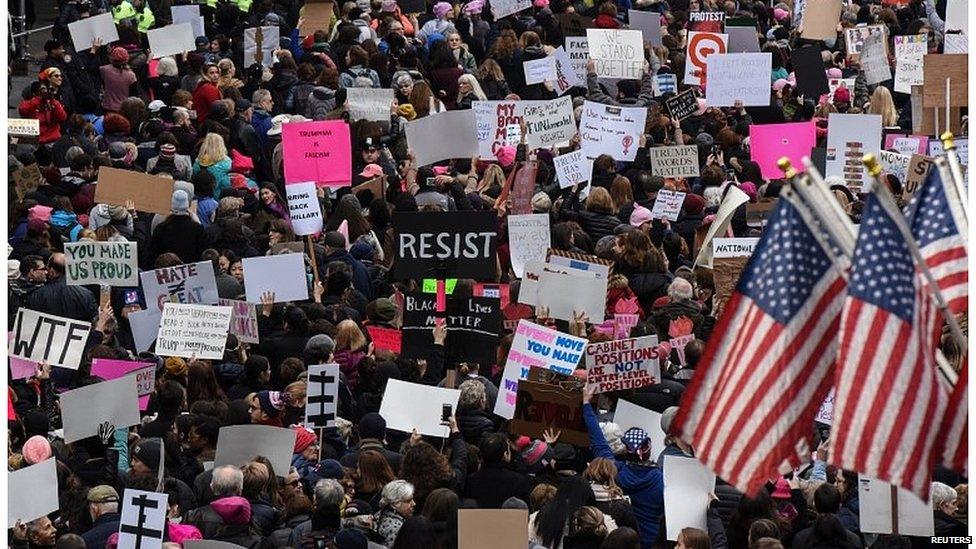
Anti-Trump demonstrations were staged across the US on Saturday
"I will be talking to Donald Trump about the issues we share and how we can build on the special relationship," she said.
"It is the special relationship that allows us to say when something is unacceptable.
"Whenever there is something I find unacceptable, I won't be afraid to say that to Donald Trump."
Shared challenges
Mrs May said Mr Trump's vow in his inauguration speech to put the US first was a "clear message" but all leaders prioritised their own nations' interests.
She said she was not overly alarmed by Mr Trump's protectionist rhetoric on trade, saying the US president had made it clear he wants a strong relationship with the UK.
"He and people around him have also spoken of the importance of a trade arrangement with the United Kingdom and that is something they are looking to talk to us about at an early stage."
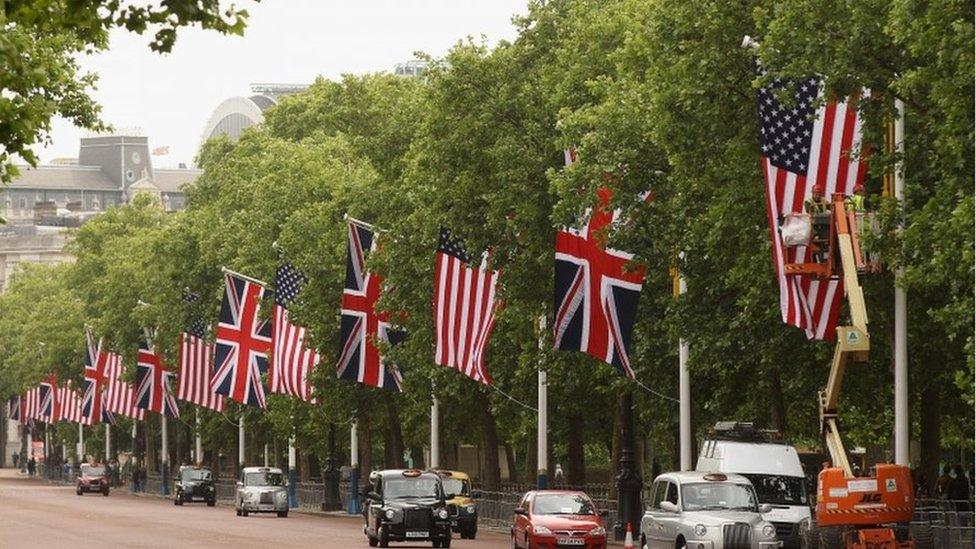
Mrs May said the timing of any future state visit was for Buckingham Palace to decide
She added: "There are issue that we will work on together in the future - the importance of Nato and defeating terrorism.
"These are issues where we share the challenges and see the threats, where we have worked together in the past and will do so in the future."
Asked whether Mr Trump was likely to be granted a state visit to the UK, Mrs May said she would be pleased to welcome him, but invitations were strictly a matter for Buckingham Palace.
A Downing Street spokesman said Mrs May had spoken to Nato Secretary General Jens Stoltenberg on Sunday afternoon, discussing "the continued importance of the alliance as the bulwark of our defence".
"The prime minister said she would be taking these messages to Washington later this week," the spokesman added.
Mr Trump has previously described Nato as "obsolete", saying it "wasn't taking care of terror", although he later qualified his remarks.
May 'fawning'
Meanwhile, Labour leader Jeremy Corbyn urged Mrs May to criticise Mr Trump over his perceived misogyny and his pre-election call to ban Muslims entering the US.
He told Sky News' Sophy Ridge on Sunday there had been "no sign" of any special relationship in Mr Trump's inauguration speech
"It was quite the opposite. It was America first, America only, America inward-looking," he said.
"I would hope that when she meets Donald Trump she will, in no uncertain terms, tell him that his misogyny during the election campaign... is simply not acceptable and not the right way of going forward."
Former SNP leader Alex Salmond told BBC Radio 5 live's Pienaar's Politics Mrs May appeared to be "fawning" in relation to the new US administration, accusing her of "rushing headlong into a special relationship" with Mr Trump.
"This is a very difficult special relationship and it's a sign of the prime minister's desperation that she's going to put herself in this position."
But UKIP leader Paul Nuttall said Mr Trump's presidency would be overwhelmingly "good for Britain".
"The most important thing is that he said Britain will be at the front of the queue when it comes to any trade deal," he told ITV's Peston on Sunday.
- Published21 January 2017
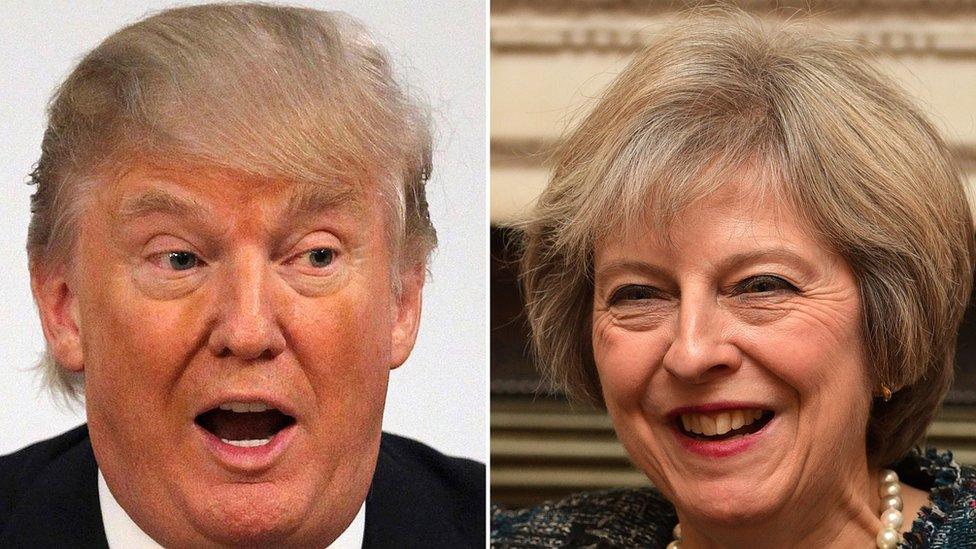
- Published21 January 2017
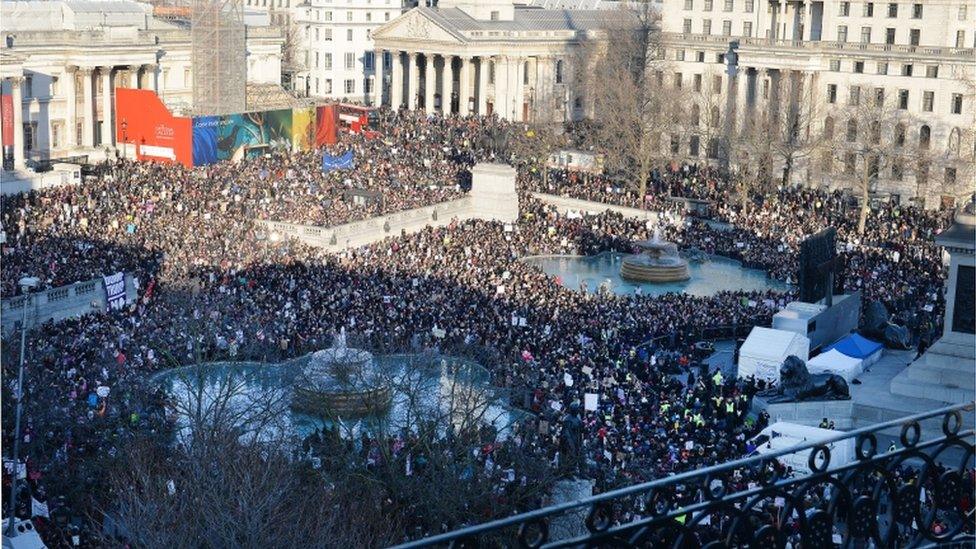
- Published19 January 2017
